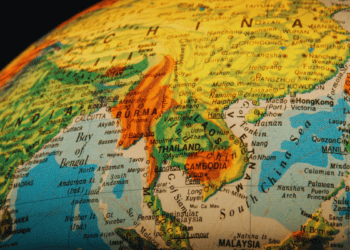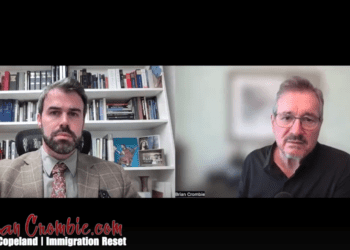Writing in the Ottawa Citizen, and Calgary Herald, MLI Managing Director Brian Lee Crowley comments on Friday’s Supreme Court ruling on the federal government’s Senate reform reference. As someone who was involved in negotiating the Meech Lake and Charlottetown accords, Crowley acknowledges that Canadians are rightly reluctant to open constitutional negotiations. But, he points out, “unless we are simply to throw up our hands and admit that our nation lacks the will and the means to fix fundamental national challenges like this, serious constitutional reform is our only option”. And he says it is possible to limit constitutional changes to the question of Senate reform, and foil provincial demands for broader negotiations.
Brian Lee Crowley, April 25, 2014
At least we know where we stand.
Friday’s Supreme Court of Canada ruling on Senate reform has essentially ruled out the Conservative government’s efforts to reform the Senate without resorting to constitutional reform.
The government’s motivation for its plan was reasonable: Canadians dislike the Senate status quo but there is no appetite in Canada for constitutional discussions. As someone who helped negotiate both Meech and Charlottetown I heartily endorse that view. Few of us who were part of those processes want to do that again and the outcomes damaged rather than strengthened Canada.
Yet the Supreme Court’s decision does nothing to change the fact that the Senate as currently constituted is unacceptable to Canadians. It is a 19th century relic whose appointed nature, lifetime (until age 75) tenure and lack of democratic accountability are unworthy of a powerful legislative body in 2014.
Yet the Supreme Court’s decision leaves us with only three choices: the status quo, reform or abolition, with the latter two unambiguously requiring constitutional amendment and even unanimity in the case of abolition.
Despite much whistling past the graveyard, the Liberal claim — that they have shown that the status quo can be reformed simply by distancing themselves from their own senators — is nonsense. Any serious legislative body has partisan features and attempting to exclude them is anti-democratic. Party is essential to politics and we will see that every time the Liberal Party wants its “formerly Liberal” senators to vote a certain way.
Improved appointment processes will not resuscitate this dead parrot either. Appointment in 2014 is wrong in principle.
As for Thomas Mulcair and the NDP’s preference of abolition, the Supreme Court now says that unanimity is required. So the premier of PEI (or New Brunswick or Manitoba) could veto it even if abolition had the support of three quarters of the population and the other nine provinces.
So unless we are simply to throw up our hands and admit that our nation lacks the will and the means to fix fundamental national challenges like this, serious constitutional reform is our only option.
Before you call the Mafia to take out a contract on me, consider for a moment what it is we all detest about constitutional discussions. It is their open ended nature with every province, territory, First Nation and interest group bringing its own issues to the table. By the time you buy enough people off to meet the “7 provinces representing 50 per cent of the population” threshold for basic constitutional amendment, the reform looks like a Christmas tree the cat just knocked over.
As I argued a few months ago in a big paper on Senate reform, it doesn’t have to be this way. We need some means to focus attention in a single issue, debate it on its merits and make a decision about what is good for the country on that issue alone.
We can do that. What is required is a federal government with the chutzpah to put a reasoned Senate reform plan to all Canadians in a referendum. A sensible plan would, I believe, achieve a large national endorsement. Ottawa could then challenge the provinces to defy their own voters and turn down the reform. The provinces would huff and puff but I think they would fall into line. As long as none of the reforms required unanimity no province would have a veto.
That last qualification is a vital one. As we just saw with abolition, the logic of unanimity confers huge bargaining power on holdout provinces because they can bring the whole process crashing down. The logic of the so-called 7/50 rule is that we can have up to three holdouts and it doesn’t matter. As soon as you have your 7/50, the bargaining power of the naysayers falls more or less to zero. I believe that we would find the seven provinces we need if faced with a large national consensus for the federal plan endorsed in a referendum. The popular backing ought to be sufficient for Ottawa to see off attempts by the provinces to get other issues on the negotiating table, because they can say they are pursuing the mandate they have been given by the people of Canada.
Is it risky? Of course. Few things worth having aren’t. But the status quo has its risks too, including playing into a deepening national disillusionment with all things political. Great countries need sound institutions to keep leaders and voters connected. Canadians find the principles on which the current Senate is based repugnant and anachronistic. The Supreme Court has clarified what the tools are we have to work with. Time to roll up our sleeves and get the job done.
Brian Lee Crowley (twitter.com/brianleecrowley) is the Managing Director of the Macdonald-Laurier Institute, an independent non-partisan public policy think tank in Ottawa: macdonaldlaurier.ca.




